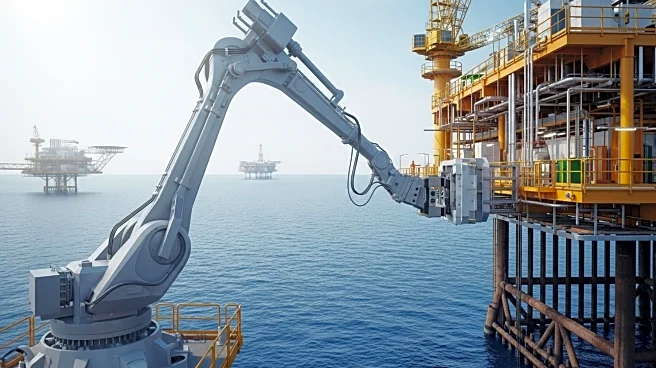What is the story about?
What's Happening?
Allseas has awarded contracts to the Able Group for the dismantling, reuse, and recycling of two major TAQA UK platforms in the North Sea, namely Cormorant Alpha and Tern. This project is one of the largest decommissioning efforts in the region, involving the transportation of the platforms' topsides, weighing a combined 47,500 tonnes, to Able Seaton Port in Teesside starting in 2027. The initiative aims to recycle or reuse up to 97% of the materials, reinforcing Able Seaton Port's status as a leading marine decommissioning facility in Europe. The contracts highlight the UK's capabilities in late-life asset management and offshore recycling, with significant implications for local infrastructure and employment.
Why It's Important?
This development is significant for the UK's energy sector, particularly in terms of enhancing domestic supply chain capabilities in decommissioning. By utilizing UK-based facilities, the project aligns with the North Sea Transition Deal's goals to bolster local industry participation. The initiative supports long-term employment in Teesside and demonstrates the UK's commitment to sustainable practices in energy transition. The collaboration between Allseas and Able Group showcases the effectiveness of advanced removal technology and recycling expertise, setting a precedent for future decommissioning projects in the region.
What's Next?
The decommissioning process is set to begin in 2027, with the transportation of the platforms to Teesside. Stakeholders, including the North Sea Transition Authority, will likely monitor the project's progress to ensure it meets the outlined sustainability and economic goals. The success of this project could influence future decommissioning strategies and policies, potentially leading to more contracts being awarded to UK-based facilities, further strengthening the domestic supply chain.
Beyond the Headlines
The project underscores the ethical and environmental responsibilities of the energy sector in managing decommissioning processes. By prioritizing recycling and reuse, the initiative contributes to reducing environmental impact and promoting sustainable practices. This approach may encourage other regions to adopt similar strategies, fostering a global shift towards more responsible decommissioning practices.















